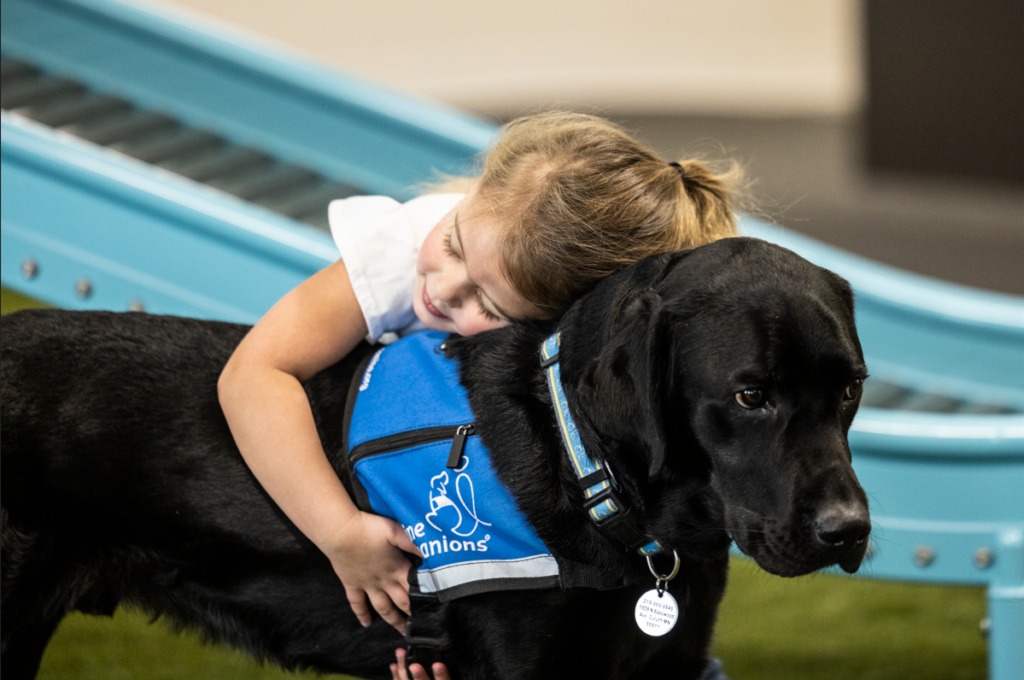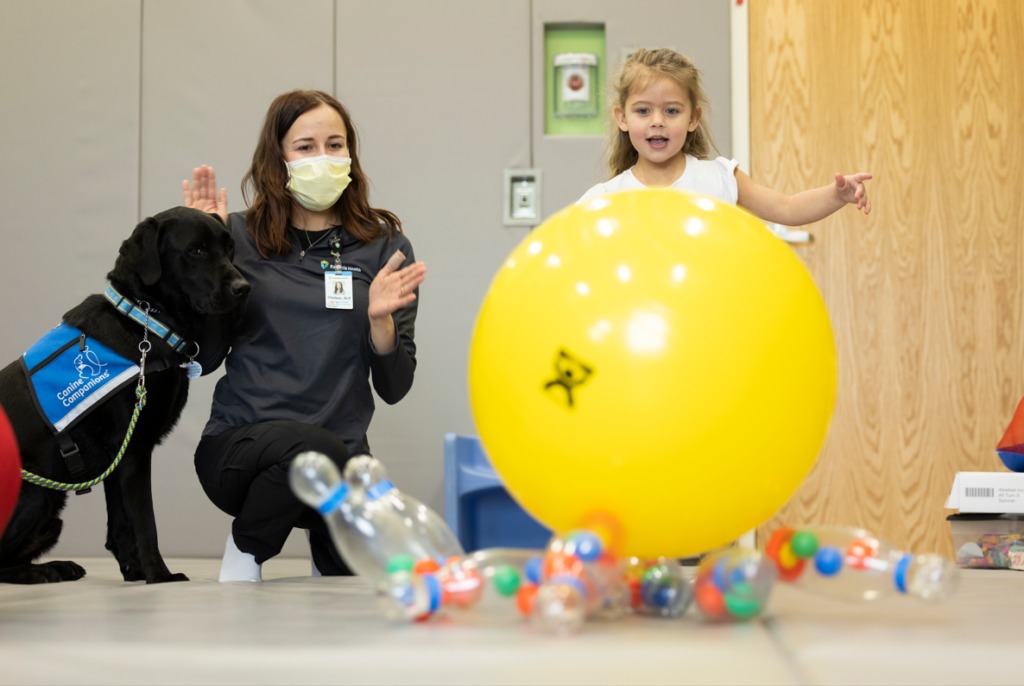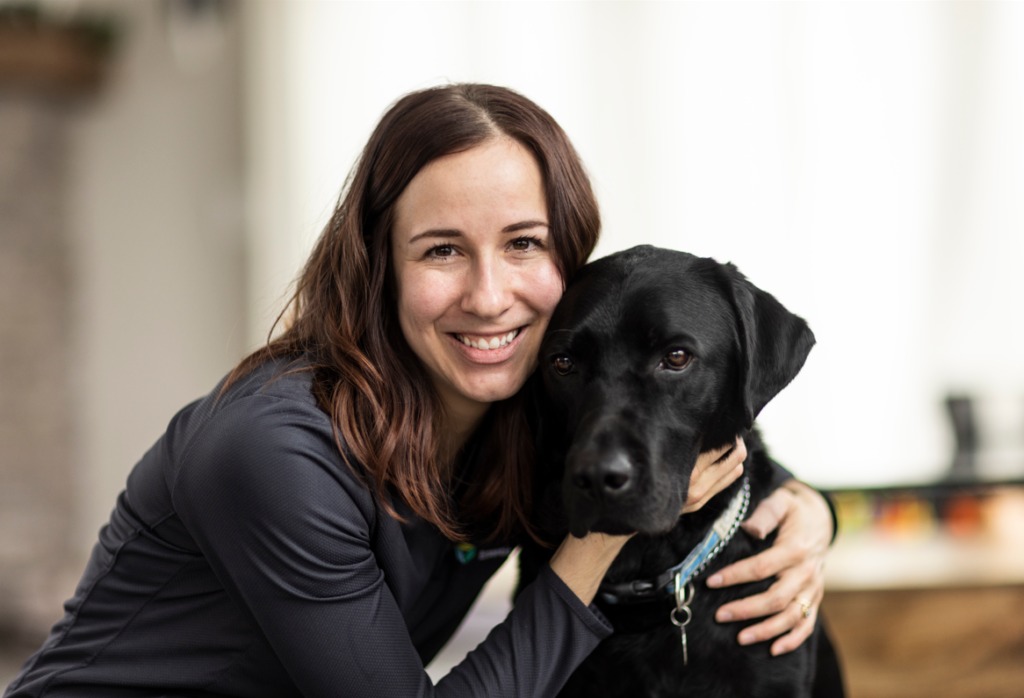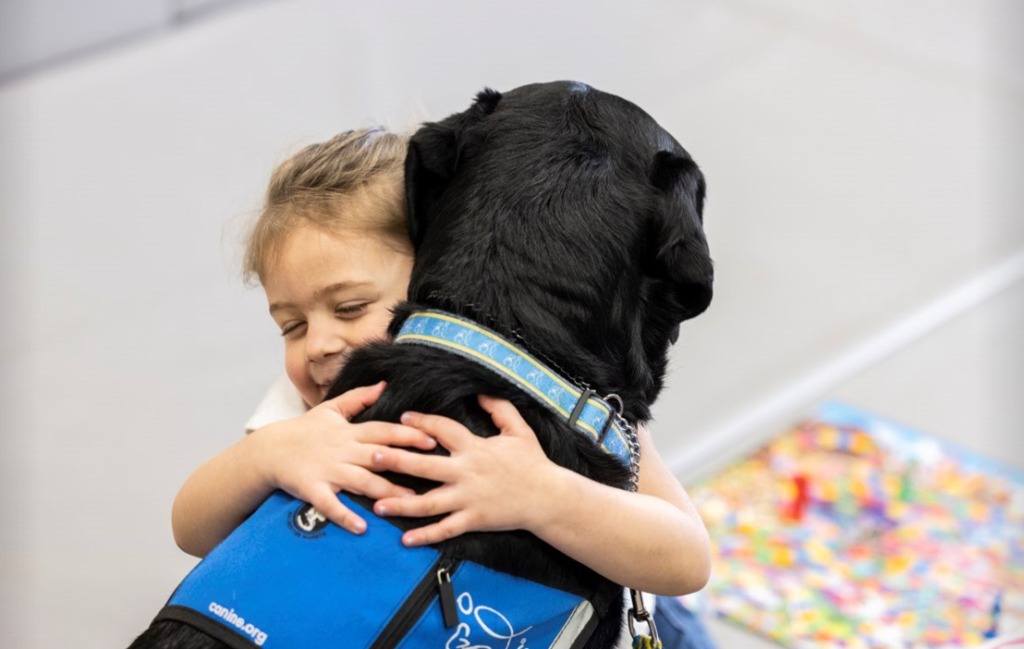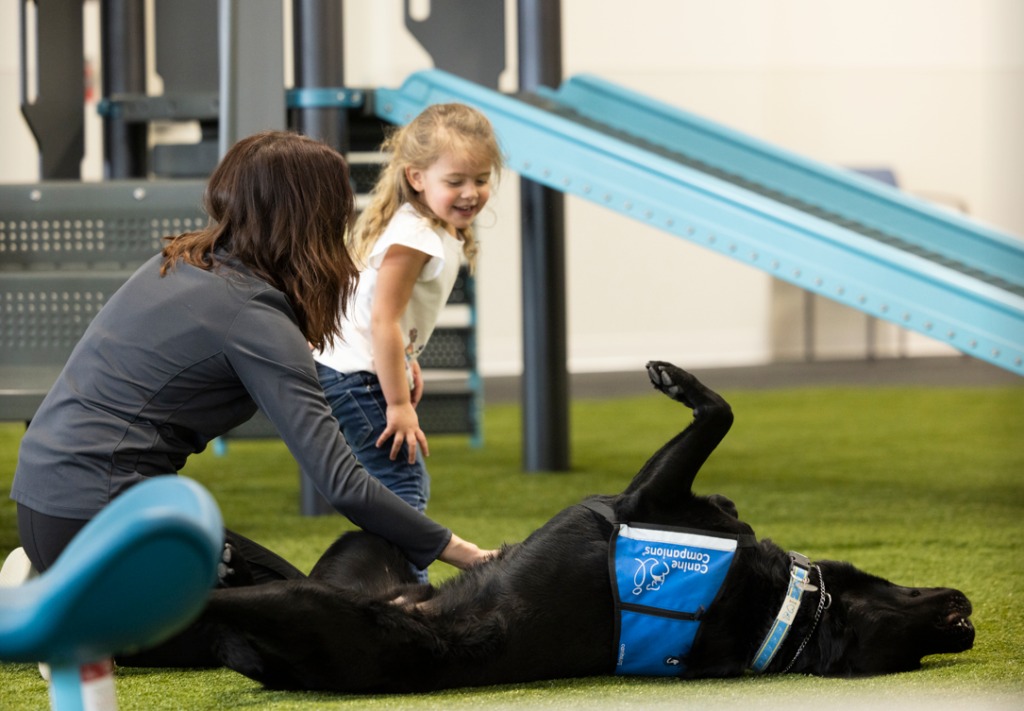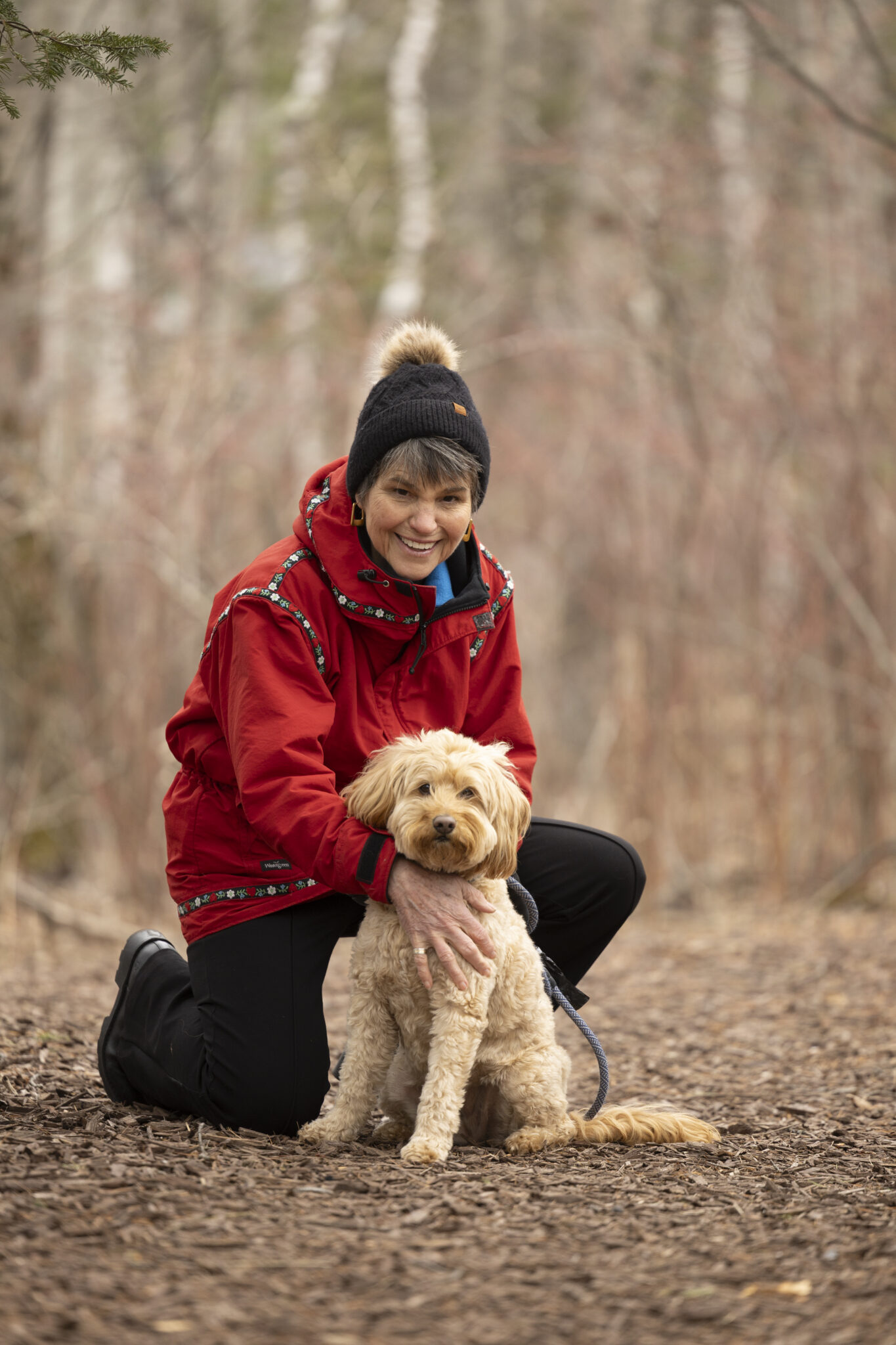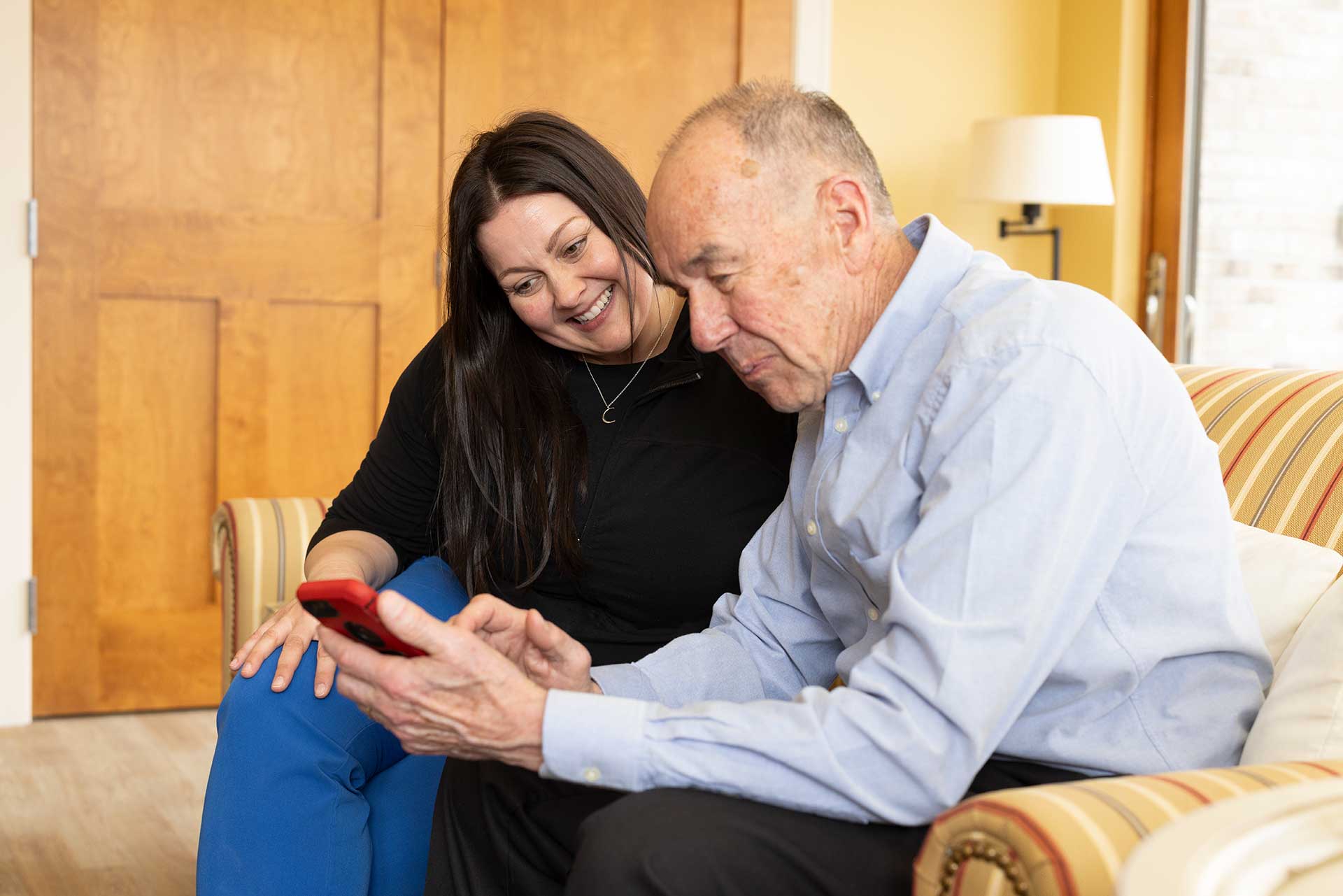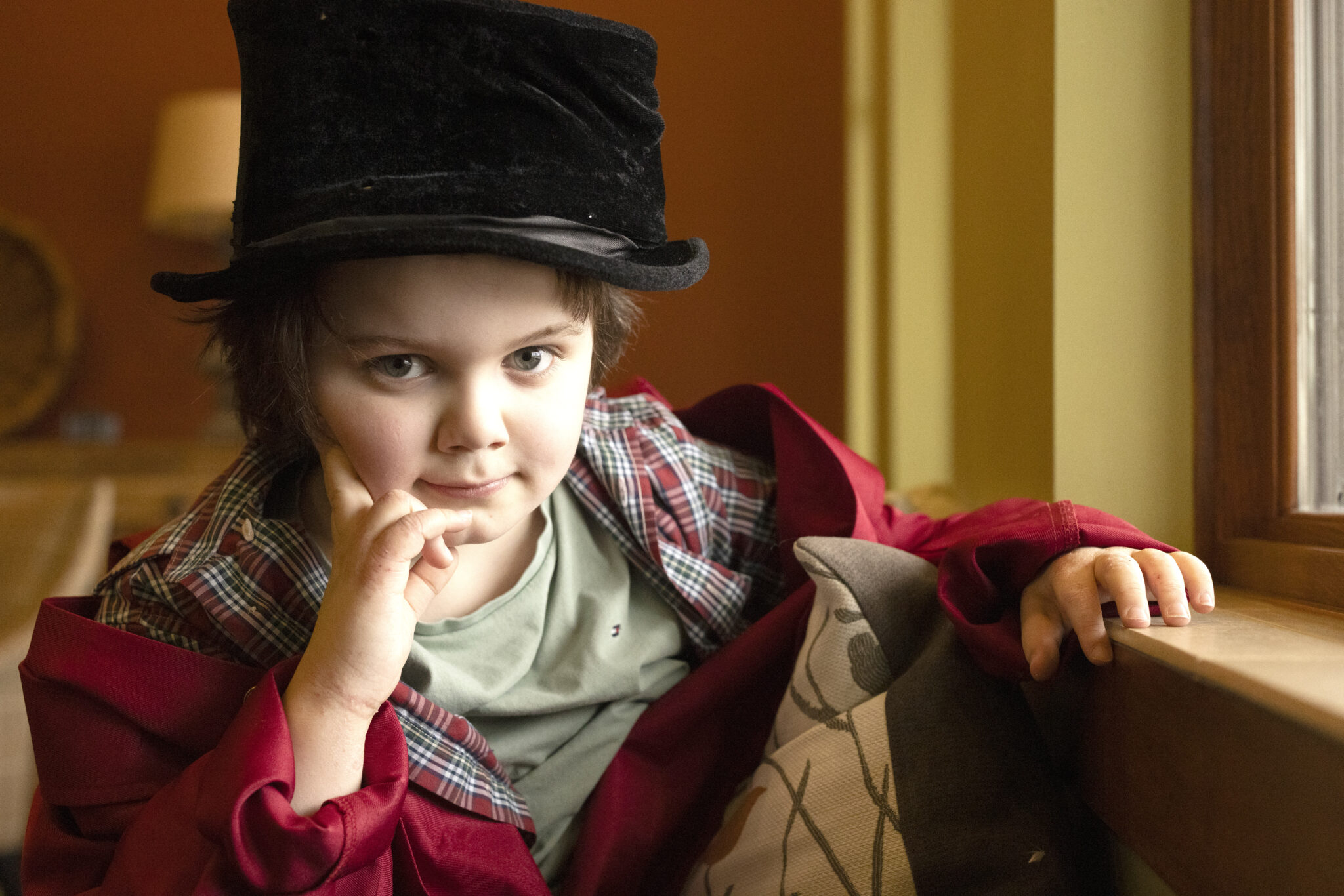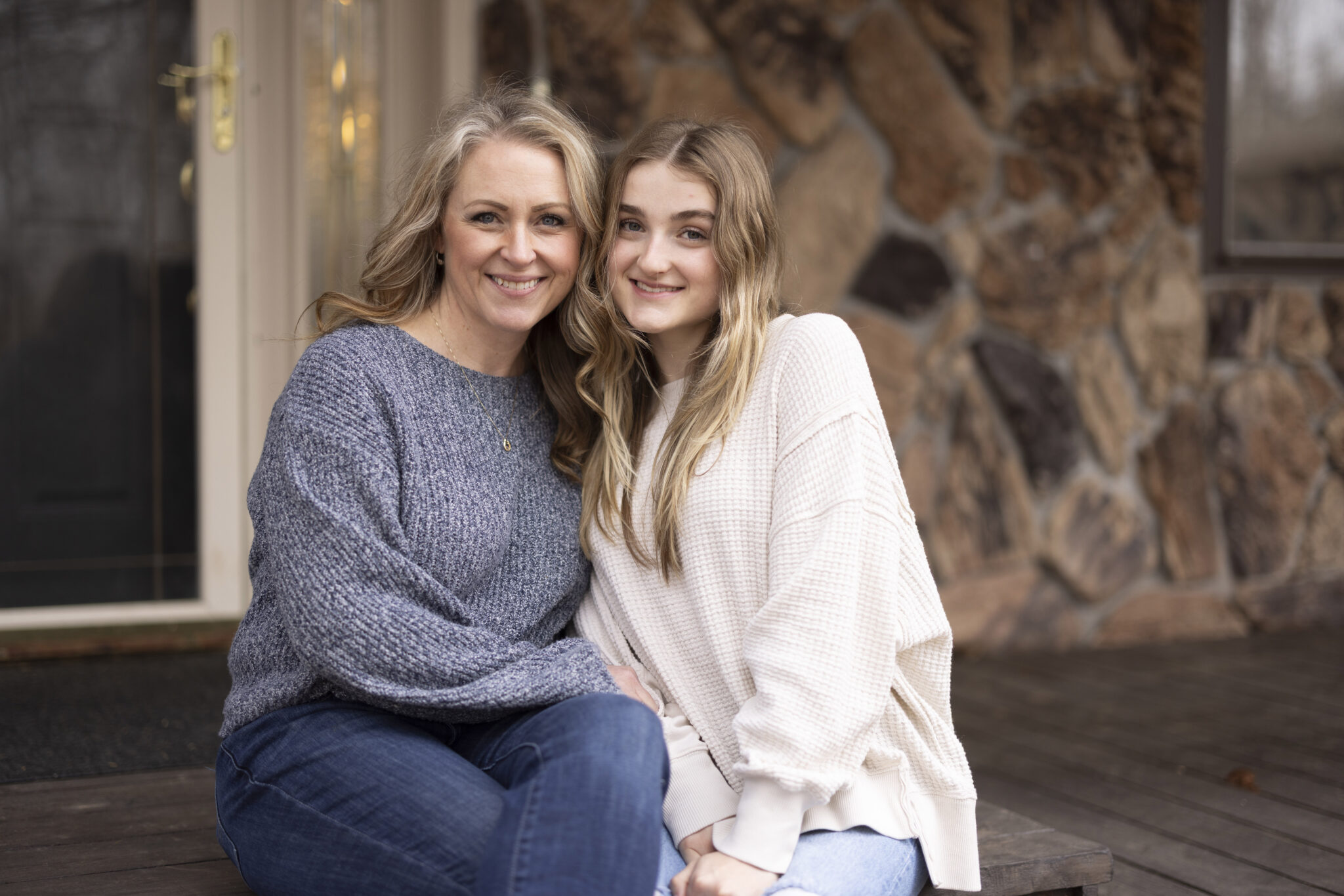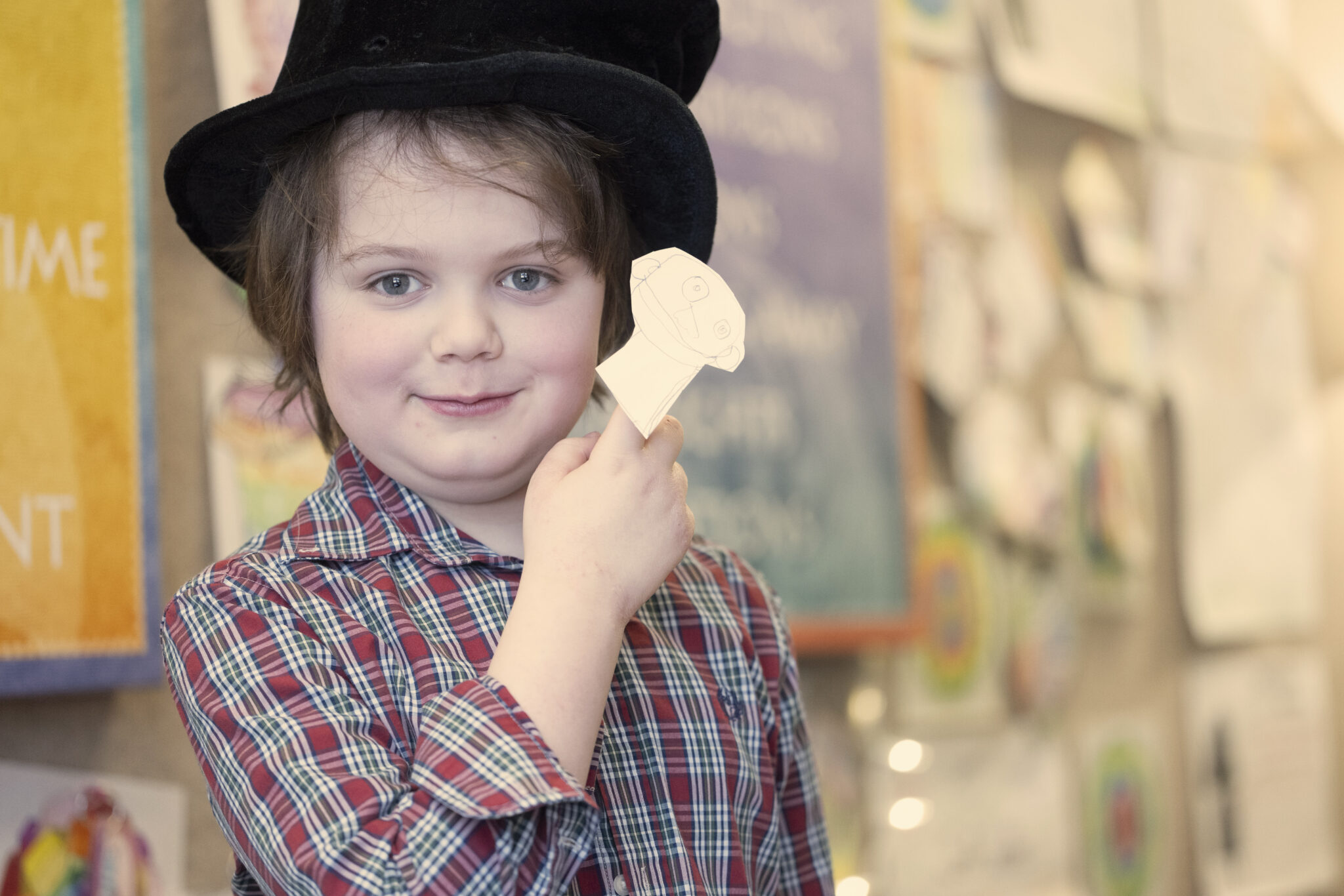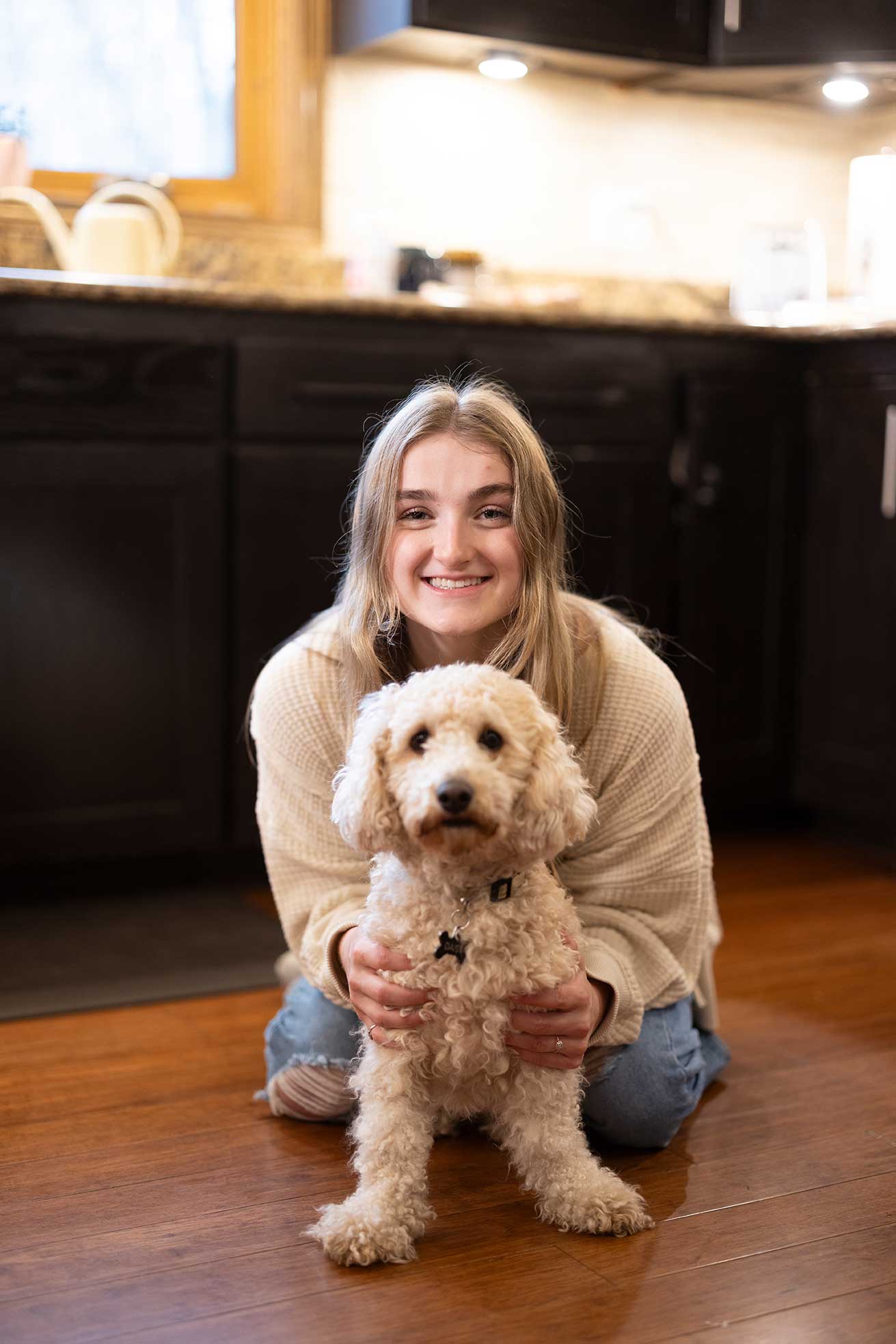Anyone who has spent any time with kids knows that their joy is a wonder. The excitement of discovering a new word or idea can ripple through the room, leaving a wake of smiles and pride. This is what Chelsea Sorvik, CCC/SLP, a pediatric speech-language pathologist at Polinsky Medical Rehabilitation Center, loves about her patients. “They light up the room. They want to engage and have fun,” Chelsea says. But getting kids to open up at first can be a challenge. Or at least it was until Humble came along.
“Having a dog present can reduce stress and bridge gaps between me and the kiddos. He brings out love and compassion.” —Chelsea
Humble is a 2 ½-year-old Labrador retriever who recently joined Chelsea at Polinsky Medical Rehabilitation Center. Chelsea works with kids ages 18 months to 18 years on a variety of communication and speech skills. Last year, she pursued the possibility of getting a facility dog to aid her practice.
She credits her husband, Josh, with the idea. “My husband had a service dog named Olivia who came from Canine Companions. She would help with daily tasks like retrieving his phone or picking up a wheelchair tire as he was getting out of the car,” she says. “It ignited a desire in me to want to use a dog in therapy.”
Chelsea went through multiple interviews, an application process, and extensive training that included a week in Ohio to match her with a dog and learn commands. (In support of their goal to make animal-assisted therapy more available, Miller-Dwan Foundation helped cover the cost of getting Humble.) “We had an instant bond. When they told us we’d be matched, he was doing bunny hops and wagging his tail, and I was crying. It felt like it was meant to be,” she says. “It was one of the highlights of my life—up there with marriage and having a baby.”
Almost any pet dog can become a therapy dog by meeting certain standards. But Humble’s training started when he was born. He spent his early life at the training facility learning skills and manners. All that training has paid off.
Now, Chelsea and her patients will head into the hallway to work on skills as they throw a ball to Humble. After a difficult task, playing fetch can help kids work on saying certain sounds like the “G” in “Go.” But that’s not all Humble does. “Humble likes to play Candy Land and several other board games. The kids will work on an “S” sound, and then get to push the button to activate the spinner. They’ll take turns with Humble,” she says. The 72-pound retriever can also play catch, push a ball with his nose, demonstrate turn-taking and social engagement, bowl, and make rounds in the waiting room to greet visitors. Beyond his active participation in therapy exercises, Humble adds joy to the facility.
“Having a dog present can reduce stress and bridge gaps between me and the kiddos,” Chelsea says. “He brings out love and compassion. A child might meet him for the first time, and they’ll run over and put their arms around his neck. He’s just sweet.”
Humble can see something in kids and comfort them in ways that make them feel at ease. A parent of one of Chelsea’s patients struggles with agoraphobia, or the fear of leaving home. She says that Humble helped create a place that both the patients and parents could trust. “Bringing your child to a therapist can be a scary thing. Humble can help reduce some of the anxiety. He brings light to people who might be scared,” she says—for both patients and their families. He has that effect on Chelsea, as well.
“Seeing the way my kiddos respond is super motivating. It’s a dream come true,” she says, “It also makes me calm that I can reach down and pet his head.”
In a perfect world, every therapist who wants one would have access to a facility dog. Miller-Dwan Foundation donors are helping make that possible—one fluffy, brown-eyed black Lab retriever at a time.

